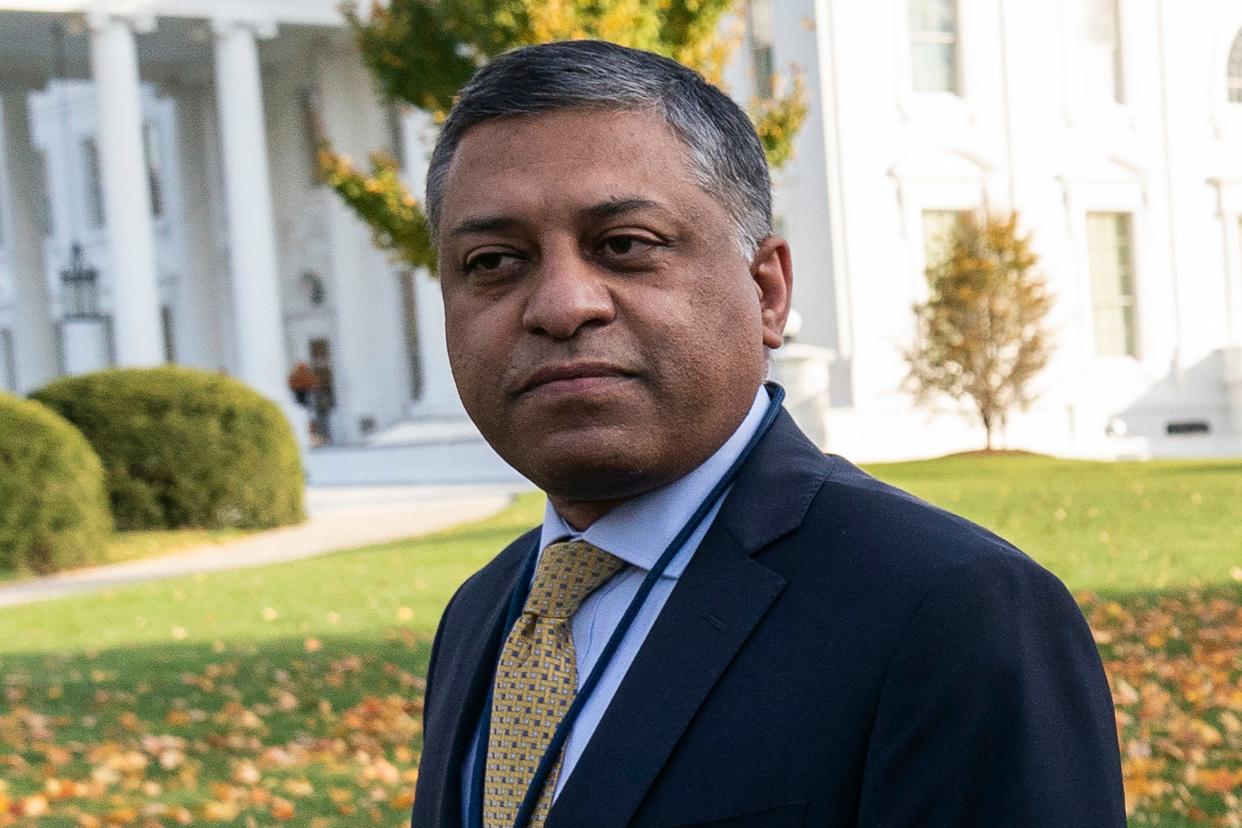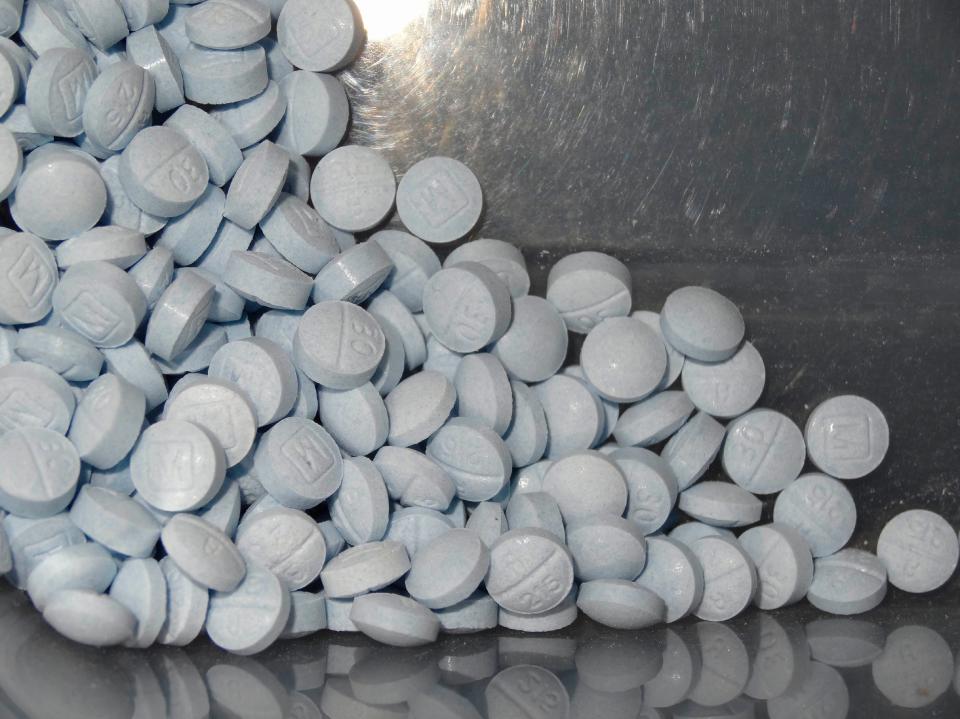White House sees signs of progress in opioid struggle as deaths continue

- Oops!Something went wrong.Please try again later.
A top White House official touted to Congress the widespread use of Naloxone and reiterated a need for targeted border funding Monday while explaining the strategies President Joe Biden’s administration is taking to combat the nation’s opioid epidemic.
“For far too many years, the overdose crisis has been unraveling the social fabric of our nation and destroying American lives and livelihoods,” Dr. Rahul Gupta, the White House director on drug policy, told the House Oversight and Reform Committee at a hearing on the government’s response to overdose and addiction.
Gupta highlighted a framework of policies aimed at reducing the supply of illegal substances, increasing the reduction of treatment recovery and fundamentally changing the way the criminal justice system treats substance abuse disorders. It’s a framework that, if implemented fully, could save up to 164,000 lives over the next three years, Gupta said.
Naloxone, an antidote used in known or suspected opioid overdoses, could prevent up to 80,000 deaths all by itself, he said.
“Saving lives is our north star,” Gupta said. “Because I believe that every life is precious.”
More than 107,000 Americans died in drug overdoses in 2021, a 15% percent increase from the previous year and equivalent to one life lost every five minutes.
Improving lives: Pain patients hope new Arizona opioid prescribing law will improve their lives
Arizona has felt the impact. In October 2017, former President Donald Trump officially declared the opioid epidemic a “public health emergency.” That year, 923 Arizonans died of opioid overdoses, and another 1,596 experienced non-fatal overdose events, according to the Arizona Department of Health Services. Not even seven months into this current year, 1,241 Arizonans have experienced non-fatal overdoses. 3,953 are suspected to have visited the hospital amid an overdose, and 372 have died.
The numbers last year were even more stark: 2,006 people in Arizona died of opioid overdoses in 2021.

Drugs have flooded the market. And the effects are particularly dangerous for homeless people, who often use while languishing in Arizona's summer heat.
But Gupta pointed to potential signs of progress. In 2021, U.S. Customs and Border Protection seized more than 11,000 pounds of fentanyl, more than they did in 2019 and 2020 combined.
“That amount of drugs is not in our communities killing Americans now,” Gupta said. “The proceeds, up to $16 billion, we’re denying to the transnational organizations that are often used for crime, corruption and other events in host countries that often destabilize fragile democracies and become the cause of migration in the first place.”
And in January 2022, CDC charts showed a decline in year-long opioid death rates from the previous months, an unprecedented decrease.
At the hearing, Gupta clashed with House Republicans who linked the continued opioid deaths to Biden’s policies at the border. The Biden administration recently proposed a budget increase of $300 million earmarked for U.S. Customs and Border Protection. Biden hasn’t continued Trump’s progress on building a border wall, which Republicans said is hampering opioid management efforts.
“The Trump administration’s stance on securing the southern border helped make Americans safer, stop the flow of opioids into the nation and reduce overdose deaths,” Rep. Virginia Foxx, R-N.C., said at the hearing. “But the Biden administration’s stance on the border is making us less safe and allowing opioid overdose deaths to continue increasing. Without addressing our southern border security, we simply cannot stop the flow of fentanyl into the country.”
Rep. Andy Biggs, R-Ariz., another member of the committee, took a similar tack.
"I would love for you to come with me. Just you and me," he told Gupta. "We don't tell them I'm a congressman; we won't tell them you're the director of national drug control policy. ... Just you and me come on down we'll go to the border. I'll take you to places where you can watch what's happening. You can watch our men and women of CBP overrun. There are literally hundreds of miles unprotected, which is where drugs are coming in."
This article originally appeared on Arizona Republic: White House sees progress in opioid struggle as deaths continue

